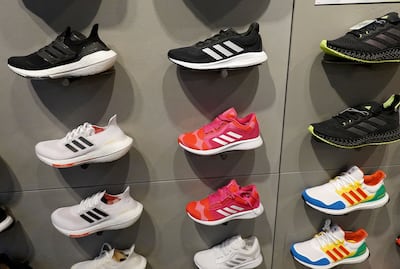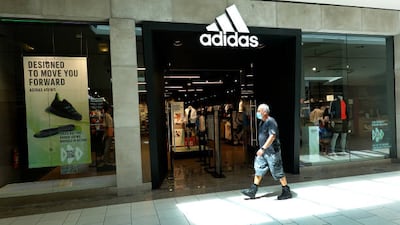German sportswear company Adidas has entered into an agreement to sell its underperforming Reebok business to retail conglomerate Authentic Brands Group for up to €2.1 billion ($2.5bn).
The majority of the price will be paid in cash at closing of the transaction, with the rest coming as deferred and contingent consideration, the sportswear manufacturer said in a statement on Thursday. The deal is expected to close in the first quarter of 2022. The majority of the cash proceeds will be distributed among shareholders, Adidas said.
“Reebok has been a valued part of Adidas, and we are grateful for the contributions the brand and the team behind it have made to our company,” Kasper Rorsted, chief executive of Adidas, said. “With this change in ownership, we believe the Reebok brand will be well-positioned for long-term success.”
Jamie Salter, chairman and chief executive of Authentic Brands, said the deal is “an important milestone” in the company’s growth. “We are committed to preserving Reebok’s integrity, innovation and values – including its presence in bricks and mortar.”
Authentic Brands, which filed recently for an initial public offering in the US, had set its sights on Reebok for many years and “we’re excited to finally bring this iconic brand into the fold”, Mr Salter said.
“Reebok not only holds a special place in the minds and hearts of consumers around the world, but the brand also has expansive global distribution,” he said in a separate statement.
Authentic Brands already owns numerous bankrupt brands such as Barneys New York, Brooks Brothers, Forever 21 and Aeropostale.
Sneaker maker and athletic wear company Reebok currently operates in 80 countries, with around 70 per cent of its business coming from outside the US and Canada. Authentic Brands aims to maintain the brand’s global footprint across retail, wholesale and e-commerce channels, the company said.
chairman and chief executive, Authentic Brands
Reebok has been formally on the block since early this year after Adidas had tried for more than a decade to revive the brand’s performance.
The brand’s global headquarters will remain in Boston, the AB statement said. Reebok’s operations will continue in the US and Canada, Latin America, Asia Pacific, Europe and Russia after the transaction.
Adidas acquired Reebok, which is known for creating the first spiked running shoe, for $3.8bn in 2006 to fend off Nike. At the time, the acquisition included the Rockport, CCM Hockey and Greg Norman brands, which Adidas later divested for €0.4bn.
In 2016, Reebok initiated a turnaround plan called ‘Muscle Up’ through which the brand was able to significantly improve its growth and profitability prospects. In March this year, Adidas designed a strategy to significantly increase sales and profitability and gain market share by 2025, according to the statement.
Following this evaluation, Adidas decided to initiate a formal process to divest Reebok in February 2021.

The deal will not change Adidas’s financial outlook for this year or its previously announced long-term targets, the company said.
Adidas reported that its net income improved by more than €600m to €387m in the second quarter. The company’s revenues grew 51 per cent to €5.08bn in the second quarter.
Wholesale revenues as well as sales in Adidas’ retail stores grew at a high-double-digit rate while e-commerce revenues declined 14 per cent in the quarter, reflecting the exceptionally high growth in the prior year period when digital revenues had almost doubled.
“Sales in our strategic growth markets EMEA and North America almost doubled. Revenues in our key categories of football and outdoor even grew at triple-digit rates,” Mr Rorsted said. “This momentum gives us the confidence to increase our full-year outlook despite the external challenges that our industry continues to face.”


